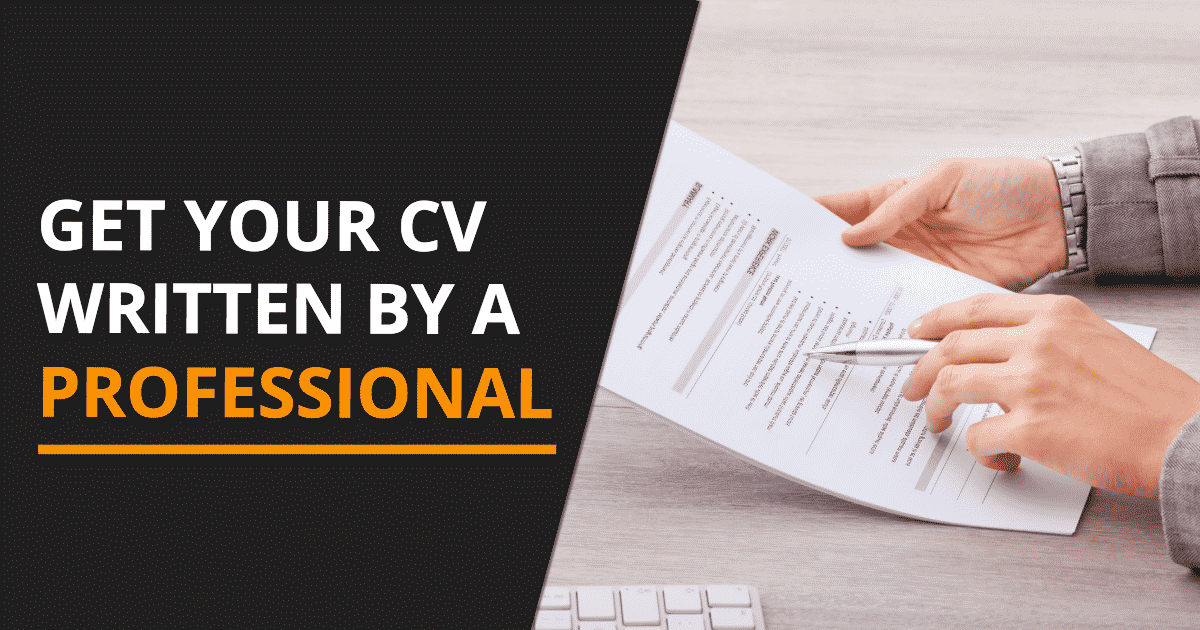Chapter 2 – My Formula for Success
Over the last 20 years I have used the same formula time and time again to pass interviews. Over the next few pages and chapters I will explain what this formula involves, and more importantly how you can use it to assist you during every interview that you attend. The formula itself is a simple one, and is broken down into three different sections:
• Interview technique
• Research
• Responding to the interview questions
Interview Technique
During my pre-interview preparation, I will concentrate on developing my interview technique. This will involve concentrating on the following key areas:
• Creating a positive first impression
• Presentation
• Effective communication
• Body language and posture
• Final questions
• Creating a positive final impression
Let’s now break down each of these areas and look at them in detail.
Creating a positive first impression
An interview panel will naturally create a first impression of you. As soon as you walk into the interview room they will be forming an opinion. Therefore, it is important that you get off on the right foot. Whenever I walk into any interview room I will always follow this process:
Knock before I enter the room





By following the above process I will be creating a positive first impression and demonstrating good qualities such as manners, self-discipline, politeness and motivation.
Presentation
Presentation effectively means how I intend to dress for the interview, and also how I intend to come across. I want the interview panel to see me as a professional, motivated, conscientious and caring person who is taking the interview very seriously. Some interviews, especially those in the public sector, do not require you to dress formally. For some bizarre reason, some senior managers believe that a person should not be assessed on how they present themselves at interview. Personally, I disagree with this approach. Whilst I agree there is no need to go out and buy an expensive suit or new pair of shoes, I do believe that a potential employee should make an effort in their appearance. For the interview I will make sure that my suit is cleaned and pressed, my shoes are polished, and my personal hygiene is up to standard. This means simple things such as taking a shower, shaving, having a haircut and general grooming. I will always avoid brightly coloured clothes and generally go for a conservative approach such a dark blue, black or grey suit. If I do decide to wear any brighter, more vibrant colours, then this will be in form of a tie. I would strongly advise that you avoid brightly coloured socks or ties with cartoon characters on them!
A good applicant
A good applicant is someone who has taken the time to prepare. They have researched both the organisation they are applying to join and also the role that they are being interviewed for. They may not know every detail about the organisation and the role but it will be clear that they have made an effort to find out important facts and information. They will be well presented at the interview and they will be confident, but not overconfident. As soon as they walk into the interview room they will be polite and courteous and they will sit down in the interview chair only when invited to do so. Throughout the interview they will sit upright in the chair and communicate in a positive manner. If they do not know the answer to a question they will say so and they won’t try to waffle. At the end of the interview they will ask positive questions about the job or the organisation before shaking hands and leaving.
A poor applicant
A poor applicant could be any combination of the following. They will be late for the interview or even forget to turn up at all. They will have made little effort to dress smartly and they will have carried out little or no preparation. When asked questions about the role they will have little or no knowledge. Throughout the interview they will appear to be unenthusiastic about the whole process and will look as if they want the interview to be over as soon as possible. Whilst sat in the interview chair they will slouch and fidget. At the end of the interview they will try to ask clever questions that are intended to impress the panel.
Improving interview technique
How you present yourself during the interview is important. Whilst assessing candidates for interviews I will not only assess their responses to the interview questions but I will also pay attention to the way they present themselves. A candidate could give excellent responses to the interview questions but if they present themselves in a negative manner then this can lose them marks. Take a look at the following diagrams, which indicate both poor technique and good technique.
Poor interview technique
The candidate appears to be too relaxed and casual for an interview.

His elbow is resting on the corner of the chair, which indicates an overconfident attitude. The candidate’s legs are crossed and his feet are not resting on the floor. This displays a relaxed and casual manner. The candidate is wearing jeans and is too casually dressed for a formal interview.
Good interview technique

Effective communication
Effective communication is all about how you speak to the interview panel, and also how you listen to what they have to say. When responding to the interview questions you should speak clearly and concisely, avoiding all forms of waffle, slang or hesitations such as ‘erm’. Look at each interview panel member when answering each question. Even though an interview question will be asked by one member of the panel at a time, you should always respond to the entire panel collectively. Look them in they eyes when speaking to them but never stare them out. This will only portray you in an aggressive or confrontational manner. If you are unsure about a response to an interview question then just be honest. Consider saying something along the lines of:
“I’m sorry I do not know the answer to that question. I will look the answer up as soon as I get back home and contact you to let you know the answer.”
If they accept this response, make sure you do research the response and contact them to let them know. When the interview panel are speaking to me, or if they are asking me a question, I will always demonstrate good listening skills. This means that I will use facial expressions to show that I am taking onboard what they are saying and I will also nod to show them that I understand the question(s). Body language and posture Whilst sat in the interview I will always make a conscious effort to sit upright and not slouch in the chair. I personally like to use my hands to emphasise points when responding to the questions but I will be careful not to overdo it. Even if the interview is going great and you are building up a good rapport with the panel, don’t let your standards drop. Always maintain good body language and posture for the duration of the interview. Final questions Before I attend the interview I will always think of two questions to ask the panel at the end. However, don’t be trapped in the thinking that you must ask questions. It is acceptable to say:
“Thank you but I don’t have any questions. I have already carried out lots of research and you have answered some of my questions during the interview.”
Some people believe that you must ask three, four or even five questions at the end of the interview – this is total nonsense. Remember that the interview panel will have other people to interview and they will also need time to discuss your performance. If you do decide to ask questions then make sure they are relevant. Creating a positive final impression I have already discussed this during a previous section. I believe that a final positive statement can work wonders:
“I just want to say thank you for inviting me along to interview. I’ve really enjoyed the experience and I have learnt a tremendous amount about your company. If I am successful then I promise you that I will work very hard in the role and I will do all that I can to surpass your expectations.”
Researching the Role and the Company
I highly recommend you try to visit the company or organisation you are applying to join. This serves a number of purposes but the most important are demonstrating commitment and dedication to the potential employer but also assisting you in your preparation for the interview. Other great ways to find out about a particular company are by visiting their website, if they have one. Look for their ‘mission statement’, ‘goals or ‘values’ and try to learn them to understand what they are all about and where they are going. Another effective research method is to type the company’s name into a search engine such as Google or Yahoo. This should bring up a number of links for you to research. Make sure that the information you read is current and up to date, and don’t waste time reading items that are more than a year old as you will most probably find that they have changed since then.
Topics you should research
You can spend many weeks studying different topics, but the following areas should be a priority in your research plan:
- Do they offer any development programmes for their employees, e.g. Investors in People?
- When were they established? • Is it a large company and do they have overseas interests?
- Who are their customers and who are their major competitors?
- Where are they located, who is their Chief Executive and who are the shareholders?
- What are their short, medium and long term goals?
- What are their values and policies? • What are their products?
- Do they have a mission statement or vision?
Top tip
Only research things that are relevant and don’t waste time reading irrelevant articles. Use your time wisely.
Responding to the Interview Questions
The majority of interviews will contain two different types of questions. There will normally be motivational questions and situational questions. Here’s an explanation as to how they differ.
Motivational questions
Motivation interview questions are questions that are designed to assess the reasons why you want the job, what you have to offer, how much research you have done and also why you are the best candidate for the job. Whilst they are relatively easy to prepare for, you should still spend plenty of time getting your responses ready to the perceived motivational interview questions as these can, and often do, catch people out.
Here’s a list of sample motivational interview questions.
Q. Tell us a about yourself.
Q. Talk me through your CV.
Q. Why do you want this job?
Q. What do you have to offer?
Q. What skills do you have that would be of benefit in this role?
Q. Why should we give you the job and not the next candidate?
Q. I don’t think you’re experienced enough for this job.Convince me otherwise.
Q. What have you done to find out about this company and the role that you are applying for?
Q. How do you define success?
Q. What will you do if you are unsuccessful today?
You will see from the above list that the questions are very much aimed at your ‘motivation’ for wanting to join their company. Before you attend the interview I would suggest that you prepare responses for all of the above questions.
Situational questions
Situational interview questions are slightly harder to respond to. In order to determine the type of situational interview question you could be asked, I would recommend that you get a copy of the person specification or job description for the role. Once you have this to hand, you will then be able to prepare responses to the type of situations that you will be expected to perform within the role. The key to scoring high during your responses to this type of questioning is to provide evidence of where you have already been in this type of situation.
The following list of situational interview questions are ones that I recommend you prepare for.
Q. Give an example of where you have worked as part of a team to achieve a difficult goal or task.
Q. Give an example of where you have provided excellent customer service.
Q. Give an example of where you have dealt with a customer complaint. What did you do and say?
Q. Give an example of where you have carried out a task despite pressure from others.
Q. Give an example of where you have made a difficult decision despite objection from other people.
Q. Give an example of where you have taken onboard constructive criticism.
Q. Give an example of where you have dealt with a difficult or aggressive customer.
Q. Give an example of where you have resolved an issue with a work colleague.
Star Method
The STAR method is one that I have used during my preparation for many interviews in the past. It works most effectively when preparing responses to situational type interview questions. I would certainly recommend that you try using it. The STAR method basically ensures that your responses to the interview questions follow a concise logical sequence and also that you cover every possible area. Here’s a break down of what it actually means:
Situation
At the commencement of my response I will explain what the situation was and who else was involved. This will be a relatively comprehensive explanation so that the interviewer fully understands what it is I am trying to explain.
Task
I will then explain what the task was. This will basically be an explanation of what had to be done and by whom.
Action
I will then move on and explain what action I specifically took, and also what action other people took.
Result
I will finally explain what the result was following my actions. It is important to make sure that the result was positive as a result of your actions. Have a go at using the STAR method when creating responses to the perceived interview questions. Write down the question at the top of a sheet of paper and write down each individual element underneath it.
Make your cv stand out from the crowd!
LEVEL UP YOUR CV TODAY


